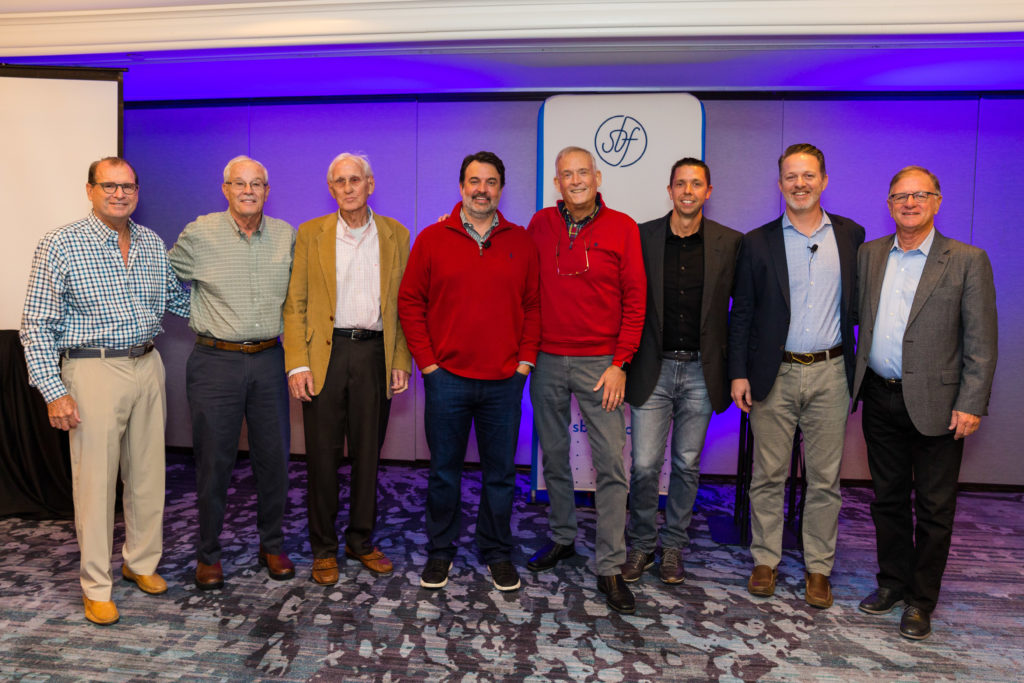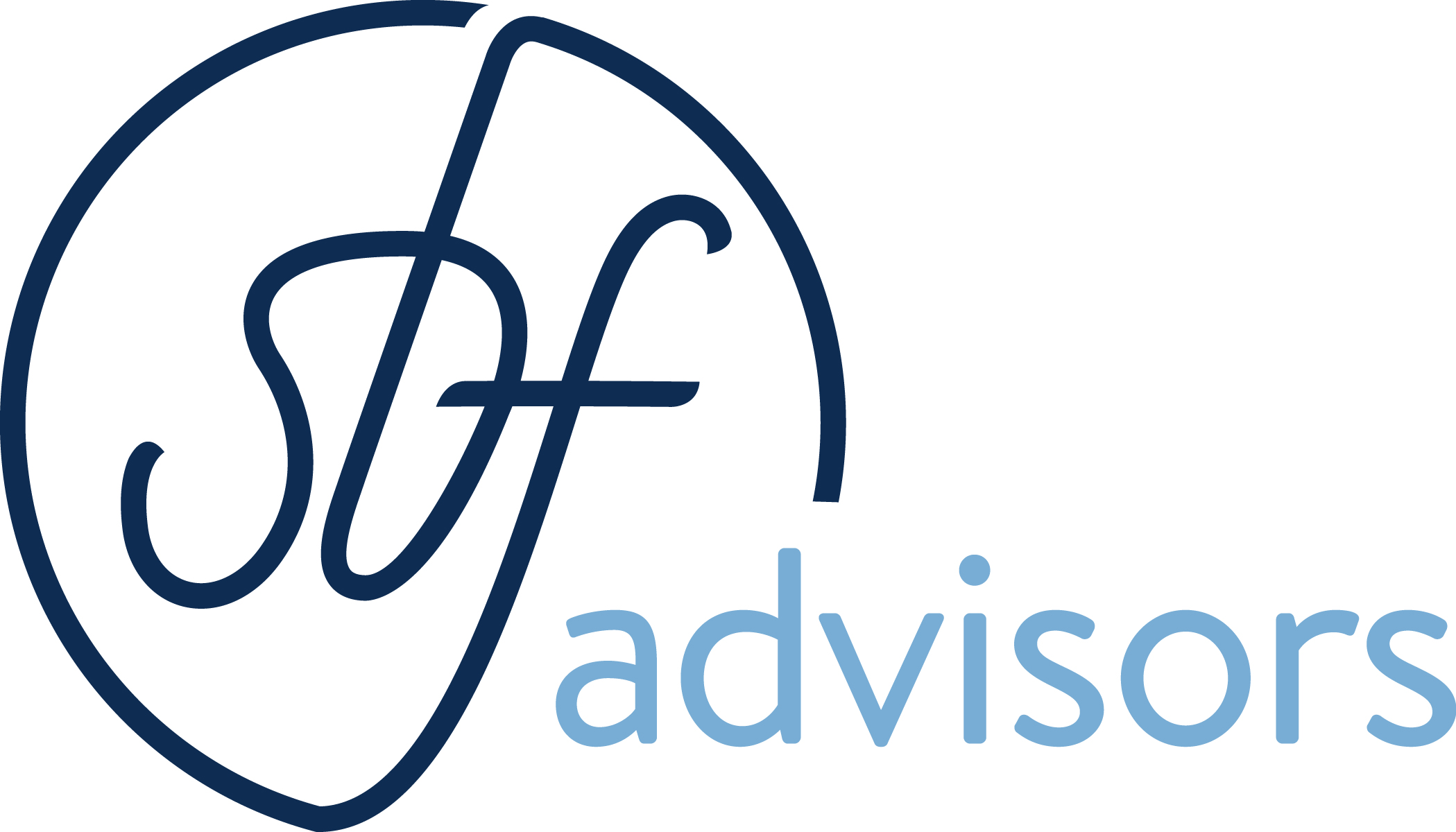What’s changed in 50 years of accounting and business?
Our partners sat down with Ed Bunch and Gordon Spoor to ask — from technology to philosophy, what changed and what stayed the same?
This month, we’re celebrating the 50-year anniversary of the founding of our firm. In the 1970s, Gordon Spoor and Ed Bunch started their careers in public accounting and created the firms that became Spoor Bunch Franz.
SBF partners W.G. Spoor and Rich Franz sat down to talk to Ed and Gordon about what has changed in accounting and business since then, and learned that while a lot is radically different, our philosophy remains strikingly unchanged.
The nuts and bolts of accounting are much different today.
When Gordon Spoor and Ed Bunch started out in accounting, there was little in the way of accounting technology. “We had two ways of doing things — it was the handwritten books, ledgers, and journals, and we had service bureaus that would process data for us,” Gordon said. “We would punch data into a machine and it would come out with a paper tape with just a bunch of holes, and a control tape that was printed, and you’d send that in to the service bureau.”
Now, technology makes it so these complex calculations are done with a click of a button, or, more often than not, automatically in the software we use. Technology allows us to do more for clients more quickly than in the past.
We have to be more intentional about taking the time to talk with our clients.
When our legacy firms started, the firm’s accountants had to be in frequent contact with clients just to get the data needed to do basic bookkeeping. “You had to have face-to-face meetings, and you had to go over things and discuss problems,” Ed said. Oftentimes, it was time consuming because we had to commute to the client’s location and physically gather the information.
At Spoor Bunch Franz now, we have some clients who want that consistent contact and others who need much less. For the clients who see SBF as a team of advisors, not much has changed in the way they interact with the firm. “They still want that hands-on touch, and we’re on the phone with them weekly or sometimes daily,” Rich said. “We still have those relationships. That’s why people hire us. Accounting is always going to be a people business.”
Some of our clients are third-generation business owners whose grandparents started the business and began working with Gordon or Ed and are now working with our current firm. We are proud of those legacies. “We are in the second generation of our family business, and the kids of my clients are dealing with my kids, and that’s kind of cool,” Gordon said.
The business of accounting has gotten broader and more complex.
“There are a lot more businesses now,” Gordon said. “It used to take a lot more in the way of capital, and building, and physical plant to start a business. So many of the business clients we had — restaurants, beauty parlors, manufacturers — they were capital-intensive, relatively speaking. Whereas nowadays, if somebody has a computer, they can get on the internet and start a business. They don’t need a big capital investment.”
That evolution has broadened our client base, and it has made it essential for us to become versed in tax rules and business strategies related to more industries than ever before.
“Accounting is still accounting, tax is still tax, but we do a lot more multi-national, multi-state work than they did 30 to 40 years ago,” W.G. said. “There are a lot more ways for businesses to make money now. I’m amazed with the ideas people come up with.”
The business environment is also affected by the political environment, and keeping up with the newest accounting rules and tax policy changes is more than a full-time job.
“We had to have massive tax libraries, it was all in print, it was not on the internet,” Gordon said. So now you can do keyword searches and make sure you didn’t miss something. Back then, you had to know how to do tax research, and it was labor intensive and very expensive to keep your library.”
Now, keeping up with a large library of books isn’t necessary, but keeping up with the latest proposals and changes continues to be essential. “The information comes so fast and from so many different places,” Rich said. “Steve, W.G., and I have been watching the Biden tax plan and even though they are just proposals that may or may not get passed — our minds are already planning. Back when these guys were practicing, unless it made the newspaper, they might not even know about the proposals, they’d just get the new tax law and deal with it then.”
Having constant access to more information can be helpful, as it allows us to plan ahead and keep our clients apprised of what could be on the horizon, but it also means that we have to wade through a lot and worry about things that may never happen.
Accounting rules have also gotten much more complicated in the past few decades. The audit side of our business is more complex and ever-evolving than the tax side, and the need for more and more documentation is only increasing.
“The accounting rules, when I first started out, there were probably 40 pronouncements of what the accounting rules were in total, and now there’s probably 200,” Ed said.
Our essential business philosophy will never change.
Our motto is “People matter most,” and we focus on making sure Spoor Bunch Franz is a great place to work. This is the result of a work ethic and a philosophy passed down from Ed, Gordon, and the original firms founded in the 1970s.
“The clients know if you have a genuine interest in serving them, and if you do, they see that, and everything else falls into place,” Ed said.
We believe our employees do the best work for clients when they feel supported, valued, and connected. To do that, our partners are committed to getting to know each employee individually, providing opportunities to destress and have fun, and creating meaningful connections with our community.
“I think I was employee number 6,” W.G. says. “Back then, we never thought we’d be at 70-something employees. But it’s still fun, and we can still maintain those core values.”
While we no longer use punch cards or maintain a giant tax library, there are some things that will never change, like the philosophy we inherited from those original firms started by our partners’ fathers.
“You put your faith first, your family second, and the firm third. And if you do that, everything else just happens,” Gordon said. “I always said never concentrate on a profit — profit is the result of service. Take care of your people, because your biggest assets are your employees. Take care of your clients, be honest, do a good job. Do all that, and you are never going to have to worry about making money, it’s easy.”


